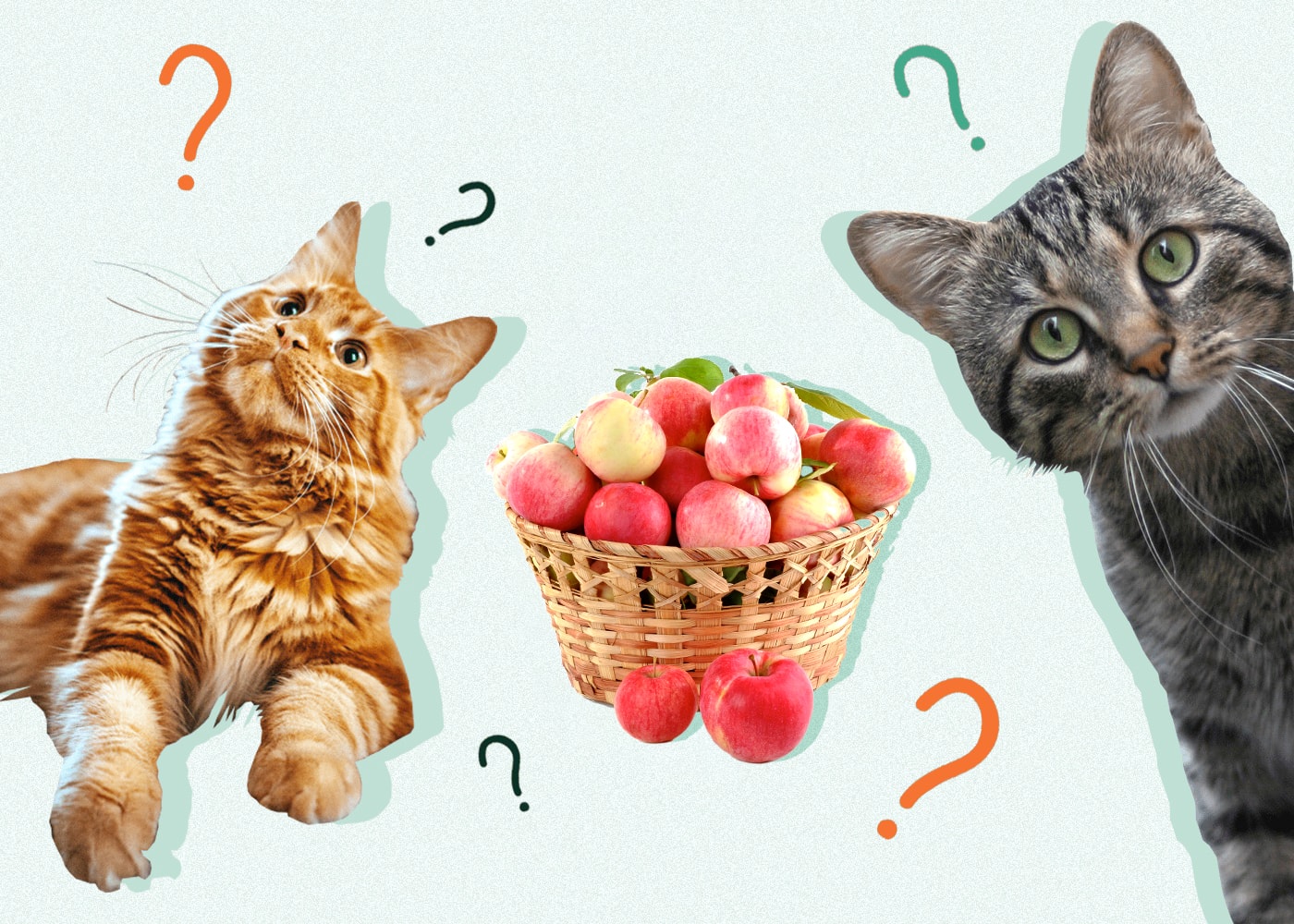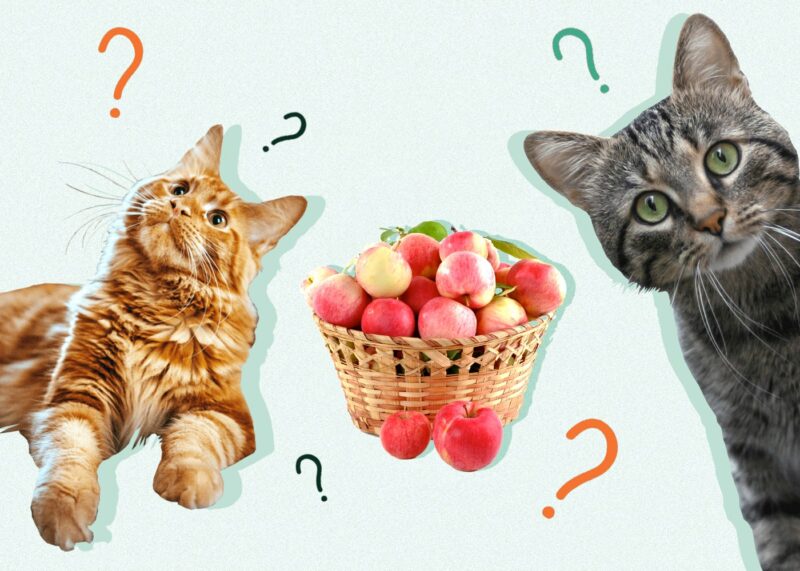Click to Skip Ahead
There’s nothing quite like the satisfying crunch of a juicy apple. While this fruit offers plenty of health benefits for humans, you may wonder if it’s something you could provide your kitty if it appears interested in your crunchy snack. Apples are one of the fruits cats can eat occasionally, but they’re not necessarily something you should make part of your cat’s regular diet.
Read on to learn more about your cat’s nutritional needs and whether you should include apples as an occasional treat.
Can Cats Eat Apples?
Yes, apples are generally considered safe for cats to eat occasionally. However, you should know that many of the health benefits that apples offer humans do not translate to cats.
For humans, apples are a great source of many vitamins and minerals and provide hefty doses of dietary fiber and antioxidants. However, a cat’s digestive system does not operate the same way a human’s digestive system does, so their diet needs to be different from ours.
Cats are obligate carnivores that require meat in their diets. They do not have the metabolism necessary to digest vegetable matter properly. They have evolved to be dependent on nutrients only found in animal tissues. So, while your kitty may occasionally eat fruits and vegetables, they need animal material to survive and thrive.
Because your kitty has a taste for animal protein, you probably won’t have to fight them off your apples and other fruits. They don’t have the taste receptors for sweetness, so while humans love a sweet treat now and then, you shouldn’t be surprised if your cat turns its nose up at anything sweet you offer it.
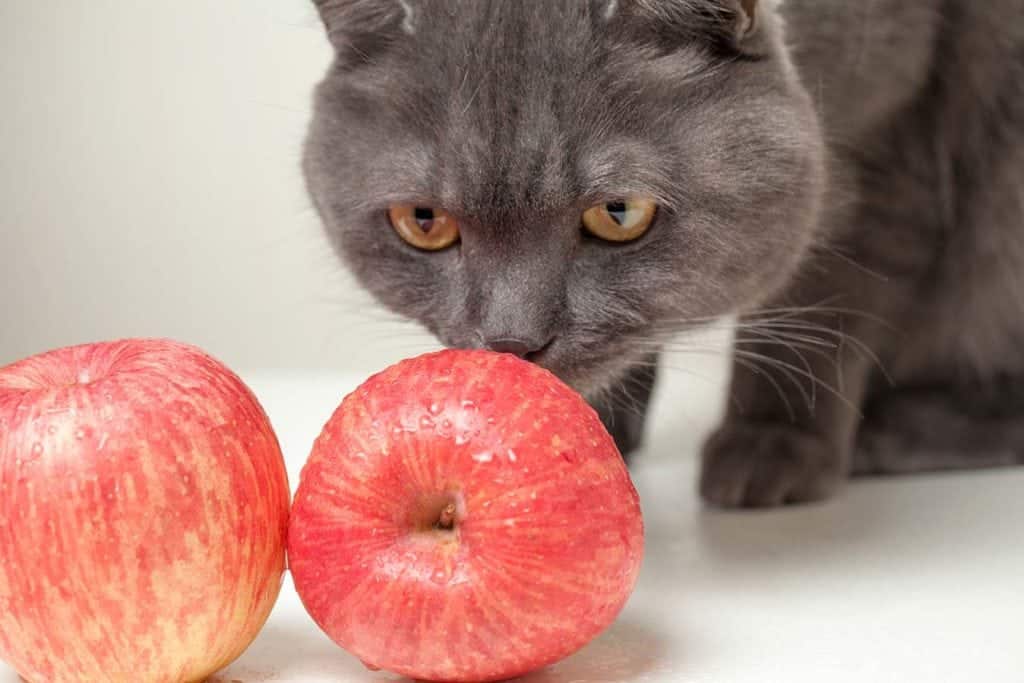
What Are the Benefits of Apples for Cats?
Apple flesh is high in calcium, vitamin C, and vitamin K. In addition, the skin is high in phytonutrients.
Calcium is an essential mineral that cats need to keep their bones strong. It also helps with blood clotting and muscle contraction.
Cats can meet their vitamin C needs through glucose metabolism. However, some studies suggest that the vitamin’s antioxidant properties can help cats manage medical conditions associated with the formation of free radicals 1.
Vitamin K is a fat-soluble vitamin necessary for blood clotting and may prevent osteoporosis. Cats deficient in vitamin K may experience excess internal or external bleeding if their bodies cannot properly clot their blood.
Phytonutrients are biologically active compounds that may have health benefits. There aren’t many studies about how they affect animals yet, but mounting evidence in humans suggests that phytonutrients can prevent some types of cancer, prevent heart disease, and boost the immune system 2.
Are Apples Dangerous for Cats?
Though apple flesh is generally considered “okay” for cats, several things should be considered before chopping one up for your pet.
1. Poisonous Components
According to the ASPCA, apple stems, leaves, and seeds contain a chemical called amygdalin, which releases cyanide 3. This can cause issues like difficulty breathing, panting, and shock. As scary as that sounds, let’s put it in perspective for you. A human would have to eat anywhere between 83 and 500 apple seeds to develop cyanide poisoning 4. That said, it’s still best to err on the side of caution and not offer your kitty any part of an apple that could potentially be dangerous.
2. Pre-Existing Conditions
Apples, or any fruit for that matter, shouldn’t be offered to cats with certain health conditions. For example, apples are high in sugar and can cause problems for cats with obesity or diabetes.
Apples are high in dietary fiber, making them difficult for some cats to digest. If your kitty has gastroenteritis or inflammatory bowel disease, it’s best to skip the fruit to prevent gastrointestinal upset.
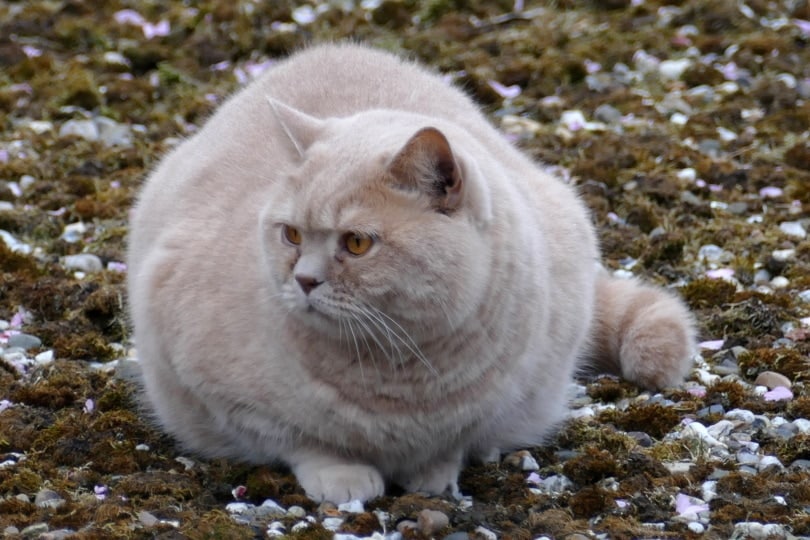
How to Offer Apples to Cats
Fruit can be offered occasionally to your pet as a treat. Most vets recommend that treats only make up around 10% of your cat’s daily diet, though less than that would be ideal.
Before serving an apple to your pet, wash it thoroughly and remove its core and seeds. Then, cut the apple into small pieces to make it easier for your cat to chew. You can keep the skin on if your cat seems to enjoy it, as it is high in phytonutrients.
Whenever you introduce new foods to your cat’s diet, monitor them closely for any adverse side effects. If your kitty appears to be struggling with gastrointestinal upset after eating apples, scale back or cut them out entirely.
What Fruits Are Unsafe for Cats?
All fruits are healthy for humans, but the same cannot be said for cats.
Grapes and raisins can cause severe issues for your cat. Not only can they cause digestive problems, including diarrhea and vomiting, but they can even cause kidney failure. In some cases, kidney failure can occur within 12 hours of ingestion. Experts are still trying to determine what component in grapes causes a risk to cats and dogs, but they’re still unsure. Even a tiny taste of a grape or raisin can make your cat ill, so it’s best to keep them in the fridge, far from the grasp of a curious kitty cat.
Citrus fruits, like lemons, limes, and oranges, contain oils and compounds that can cause digestive irritation and even central nervous system depression in cats.
Rhubarb is another toxic fruit you shouldn’t allow your cat. Its leaves contain soluble oxalate crystals in varying degrees throughout the entire plant. When these salts are absorbed from the gastrointestinal tract, they bind to calcium, resulting in a sudden calcium drop. Rarely kidney failure can occur as a result of eating this plant.
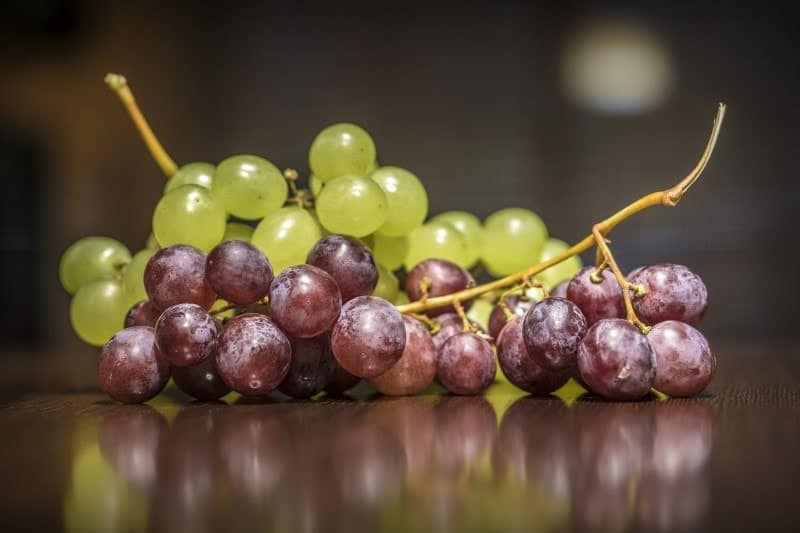
Final Thoughts
So, can cats eat apples? Yes. Should they? Not really, no. Your cat needs animal protein to thrive and survive, and it won’t get its needs met by ingesting fruits like apples. However, if your kitty has taken a liking to apples, you can offer it occasionally in very small amounts. Remember, nutrients should take precedence over treats. While apples are healthy for us, they don’t contain the nutrients your kitty needs, so be sure your pet meets its nutritional needs through a meat-based diet.
See also:
Featured Image Credit: Pikrepo

